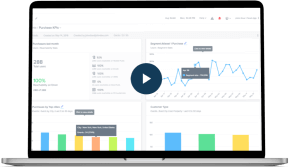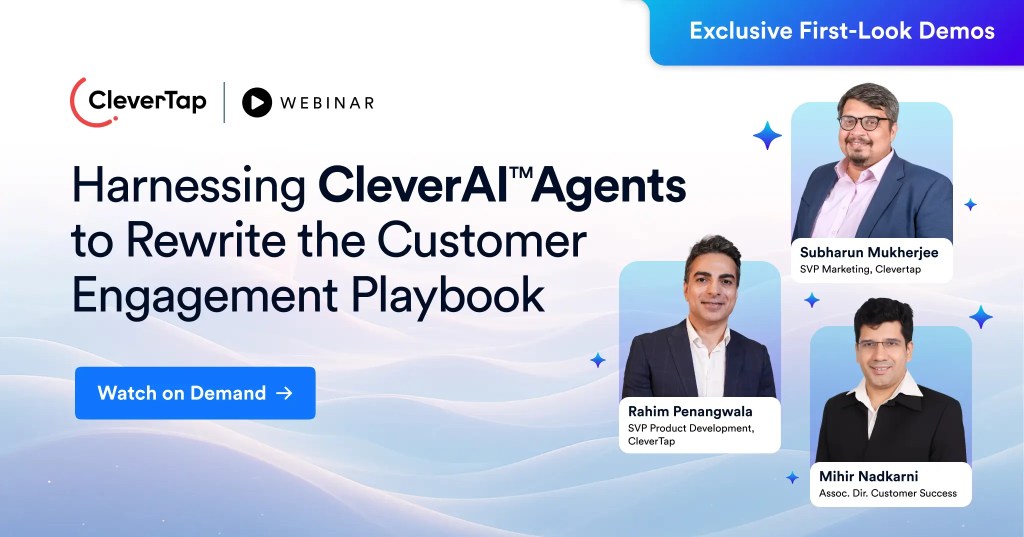In the era of hyper-personalization, customer engagement relies more than ever on data. Now, as AI pushes the boundaries from personalization to true individualization, marketers need to, and in fact are beginning to, move closer to the frontlines of data governance.
Further, for AI systems to be truly intelligent and productive, they need vast amounts of data. This leads marketers to a data rush, which in turn increases the need for data governance.
Traditionally, data governance has been overseen by the chief data officer and managed within IT, legal, and compliance functions. But in the age of AI, accountability of data governance is evolving. Regulators and customers don’t distinguish between “the team/tool that stored the data” and “the team/tool that used the data in an AI-powered campaign”.
As AI tech makes data more intricately woven into marketing strategies and activities, marketers will have a significantly larger role to play in the overall data governance of the brand/organization.
So, what can you, as a marketer, do to uphold data governance best practices and ethical standards? Let’s find out.
The Role of Marketing in Data Governance
As marketers, you are not expected to draft encryption policies or run compliance audits, but you do play a key role in governance in areas like:
- Data collection design: Deciding what data is collected in forms, surveys, or campaigns and ensuring it’s justifiable.
- Consent workflows: Ensuring opt-ins, cookie banners, and preference centers are transparent and legally compliant.
- Vendor/partner vetting: Selecting adtech, martech, and AI tools that meet privacy and security standards.
- Messaging and disclosure: Communicating how data is used, in customer-friendly language, across campaigns and channels.
Why Data Governance Matters to Marketing
While marketing teams rely heavily on IT/legal for data governance rules and policies, they may not always understand the why behind them, which includes:
- AI and personalization need clean, consented data
Data governance isn’t just about compliance checklists or IT policies. Without good governance, data quality suffers, which directly impacts targeting accuracy, recommendation engines, and campaign ROI.
- Regulations targeting marketing directly
Laws like GDPR, CCPA, and DPDP, among others, have explicit clauses on consent, profiling, and automated decision-making. Marketing campaigns are often the point of contact for collecting and processing that data.
- Brand trust is a marketing goal
A data breach or misuse scandals not only result in legal and financial damages but also hamper customer loyalty and brand reputation – both squarely in marketing’s territory.
Going forward, marketing teams will need to proactively start managing, if not being accountable, for all the above.
Marketing-Centric Data Governance: Key Considerations for the AI Era
In the AI era, strong data governance is going to be a marketing differentiator. By implementing governance standards into every campaign, you’re not only protecting your brand from fines and breaches but also deepening relationships with the very people you’re meant to serve.
Here are the key considerations of a marketing-friendly data governance framework:
1. Data Policy
A data policy sets the rules for how your team collects, stores, and uses data. For marketing, that means:
- Being clear on what types of data you collect and why.
- Knowing how AI tools process that data for personalization or segmentation.
- Outlining restrictions on sensitive data handling.
Pro tip: Align your data policy with both regulatory standards (like GDPR, CCPA) and brand values. Your policy should be simple enough for campaign managers to understand, yet comprehensive enough to satisfy compliance audits.
2. Smarter Data Collection
AI thrives on data volume, but you shouldn’t collect data “just in case.” Instead:
- Gather only what’s necessary for specific campaigns or journeys.
- Build privacy-by-design into every data capture point (forms, cookies, lead gen).
- Implement progressive data capture into your workflows and journeys while mentioning the benefits of data collection to the customers.
- Regularly audit your martech stack to ensure each data point has a clear, lawful purpose and is being stored and processed as per applicable laws and company policies.
This approach not only strengthens compliance but also enhances data quality, which directly improves AI model performance.
3. Consent Management
Consent is the foundation of ethical marketing in the AI era. Your approach should be:
- Transparent: Explain how AI uses the data (e.g., to personalize offers or recommend content).
- Consistent: Ensure customer consent status is honored across all touchpoints, channels, and tools.
- Easy to manage: Let customers choose which data they share and for what purposes, along with offering clear options to update or withdraw consent at any time.
Marketers who master consent management not only reduce compliance risk but also position their brand as trustworthy and customer-centric.
4. Data Sharing
Third-party partnerships, analytics tools, SaaS integrations, and AI model providers also require data access. But when left unchecked, it can backfire. Safeguards should include:
- Sharing only anonymized, pseudonymized, or tokenized data with third parties, especially AI models.
- Having clear contractual safeguards on how partners can use shared data.
- Using a data clean room type infrastructure to share and collaborate.
- Involving compliance teams in vetting new data-sharing arrangements before launch.
Remember, your customers see all partners as an extension of your brand. If they mishandle data, you own the reputational fallout.
5. Securing and Auditing Your Data
Even the best AI marketing strategy will fail if data isn’t stored and managed securely. Make sure to:
- Encrypt data at rest and in transit.
- Maintain role-based access controls to limit internal misuse.
- Schedule regular data audits to ensure policies are followed.
- Track data lineage so you know where it came from, how it’s used, and where it’s going.
These measures not only protect against breaches but also speed up compliance reporting when regulators or stakeholders ask for proof.
6. Disclosures
Proactive transparency turns a potential compliance headache into a brand trust advantage. Remember, different audiences need different levels of disclosure:
- Customers: Use plain language in privacy notices to explain the use of AI and its role transparently.
- Regulators: Keep documentation ready to prove compliance.
- Leadership/Board: Provide regular updates on data governance health and risks.
What Marketers Should Do: Practical Steps for Data Governance in the AI Era
Here are four key actions every marketing professional should prioritize:
1. Vet Your Vendors Thoroughly
When evaluating AI or martech partners, dig deeper than feature lists. Ask about:
- The training data sources behind their models.
- How they manage AI usage logs.
- Whether they provide opt-out options for customers.
- If they’re adopting privacy-enhancing technologies (PETs).
The goal is to ensure your vendors’ practices align with your brand’s standards of trust and compliance.
2. Limit Data Exposure
Follow the principle of least privilege with data. Share only the information necessary to achieve campaign objectives, and exclude sensitive fields wherever possible. This not only reduces regulatory risk but also improves resilience against breaches or misuse further down the data pipeline.
3. Demand Transparency
Transparency at every stage helps maintain both compliance and customer trust. Hold your vendors accountable for clarity. Ask them to provide:
- Content provenance (proof of source for AI-generated material)
- Clear disclosure practices
- Model documentation that explains how data is processed
4. Monitor Continuously
Governance is not a one-time effort. Schedule quarterly audits, track the rise of “shadow AI” (unauthorized tools creeping into workflows), and maintain an internal registry of all AI features in use. This ensures visibility, consistency, and alignment with company-wide policies.
The Bottom Line
Having robust data governance is a business imperative today, especially considering the unprecedented pace of AI adoption in marketing – from chatbots and predictive scoring to content generation and beyond. For marketers, this shift means data governance is no longer just a compliance function; it’s a strategic enabler of trust, personalization, and competitive advantage.
In an AI-first world, marketing teams must work alongside IT, legal, and compliance to ensure data is collected ethically, consent is managed transparently, and information is stored, shared, and audited securely. By embracing a marketing-friendly data governance framework, brands can not only meet regulatory demands but also enhance campaign effectiveness, protect customer relationships, and turn data stewardship into a powerful differentiator.
Jacob Joseph 
Heads Data Science.Expert in AI, Data & Analytics and awarded 40 under 40 Data Scientists in India.
Free Customer Engagement Guides
Join our newsletter for actionable tips and proven strategies to grow your business and engage your customers.














































